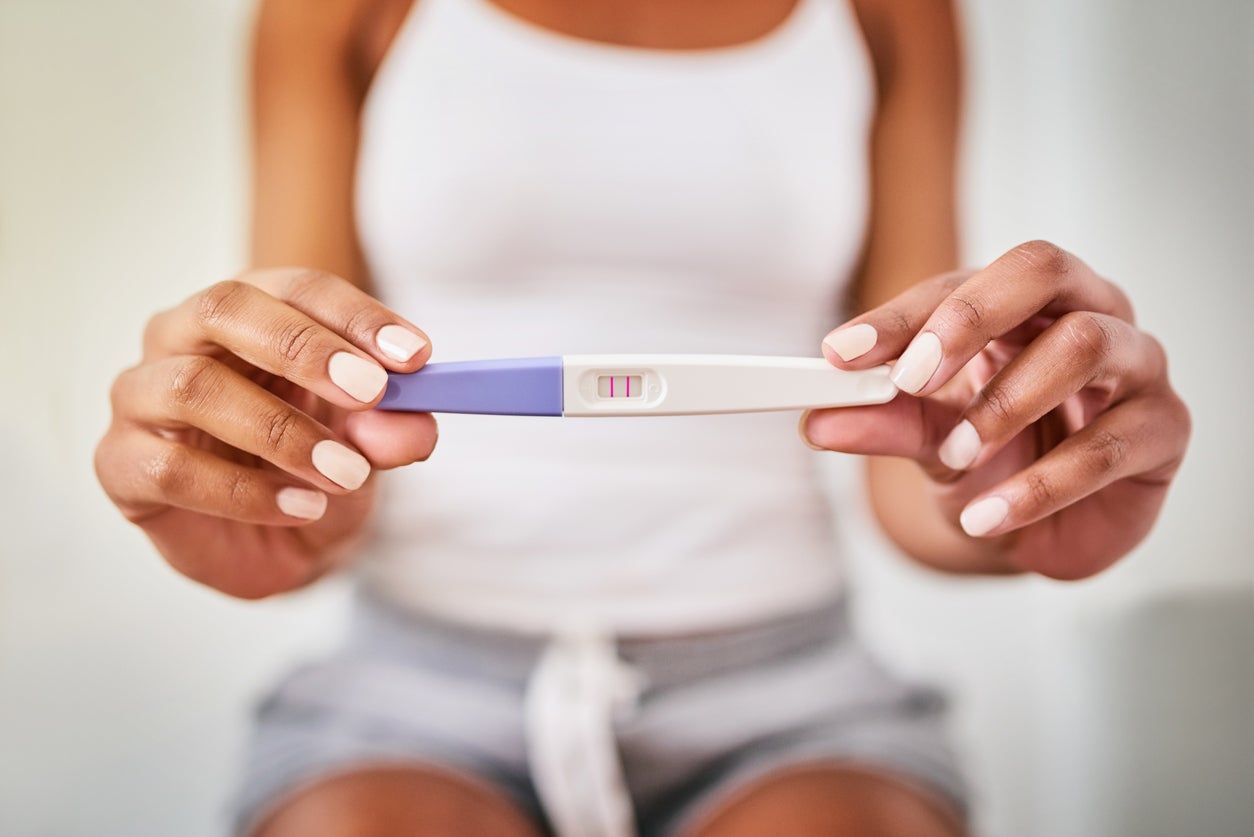10 early signs and symptoms of pregnancy, according to experts
Sore breasts, nausea and spotting are just some of the symptoms people need to be aware of

[This article was originally published in 2018]
Many people may claim they know how to spot the tell-tale signs of pregnancy.
However, there are a variety of symptoms of early pregnancy that some are likely less aware of, such as implantation spotting and leg cramps.
Pregnancy tests may not always display the correct results right away, which is why it’s important to be clued up on the other signs that a woman is in her first trimester.
Here are 10 early signs of pregnancy that everyone should take note of.
Missing a period
Missing a period is one of the most commonly known signs that a woman may be in the early stages of pregnancy.
During menstruation, the lining of the uterus breaks down and is shed in the form of a period, which typically lasts three to seven days.
When a woman becomes pregnant, the continued production of the hormone progesterone maintains the lining of the uterus, which means that she won’t experience periods as the lining of the uterus is no longer being shed.
Cramps
During the first trimester of pregnancy, a woman may experience cramps in her legs and feet.
According to Clearblue, this is caused by a change in the way in which the body is processing calcium.
“Much of the calcium that you get in your normal diet is used by your body to help develop your baby’s bone, teeth and other organs,” wrote Dr M.D. Mazumdar, a senior consultant gynecologist at the SM Polyclinic.
“This decreases your own body’s share of calcium, making your bones and muscles weak.”
Sore breasts
Another common symptom that women may notice as their bodies begin to change during pregnancy is increased sensitivity of the breasts.
Not only may their breasts feel more sore and tender than usual, but they may also increase in size, as explained by the NHS.
Further physical changes of the breasts may include more visible veins and darkening of nipples.
Fatigue
When a woman becomes pregnant, the hormonal changes that occur can make her feel increasingly tired.
An increase in the levels of hormones oestrogen and progesterone can lead to immense fatigue, particularly during the first trimester.
Nausea
Morning sickness is a term often used when describing the nausea that some women have to cope with when carrying a child.
However, morning sickness can occur at any time of day.
Women who experience morning sickness may do so around six weeks after their last period, as stated by the NHS.
Spotting
While women don’t have periods during pregnancy, they may still experience spotting on occasion.
Approximately one in four pregnant women will lightly bleed during their first trimester, according to BabyCentre.
Implantation bleeding can occur around a week after ovulation when the fertilised egg implants into the lining of the uterus.
Cravings
It’s a well-known fact that women may experience a change in their taste preferences when pregnant.
They may develop an aversion to foods that they previously loved, while simultaneously craving foods that they used to hate.
According to the NHS, pregnant women may also notice an increase in the strength of their senses, particularly of smell.
Mood swings
As previously stated, a pregnant woman’s body will experience a dramatic increase in the hormones oestrogen and progesterone in the blood.
This can lead to mood swings during early pregnancy, as stated by Clearblue.
Bringing a baby in the world is an emotional experience, so a combination of hormonal changes and the overwhelming nature of pregnancy could lead to a whole array of feelings rushing to the surface.
Frequent bathroom trips
Women in the early stages of pregnancy are likely to experience a greater need to use the bathroom on a more frequent basis.
This is due an increased blood flow to the kidneys, as stated by Kidspot.
Furthermore, the growing size of the uterus during the first trimester can also put pressure on the bladder.
Hyperemesis gravidarum
While this term may not be very familiar, it affects as many as one in 100 pregnant women, Clearblue states.
Hyperemesis gravidarum refers to severe vomiting during pregnancy.
Women who experience hyperemesis gravidarum may continue to do so throughout their entire pregnancy, although symptoms can improve over time.
It’s important for pregnant women to seek the advice of a doctor if experiencing severe nausea and vomiting.
Subscribe to Independent Premium to bookmark this article
Want to bookmark your favourite articles and stories to read or reference later? Start your Independent Premium subscription today.

Join our commenting forum
Join thought-provoking conversations, follow other Independent readers and see their replies